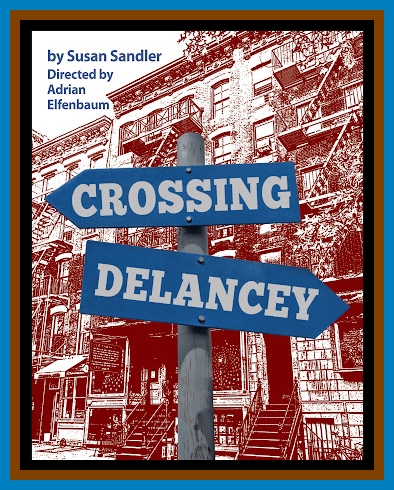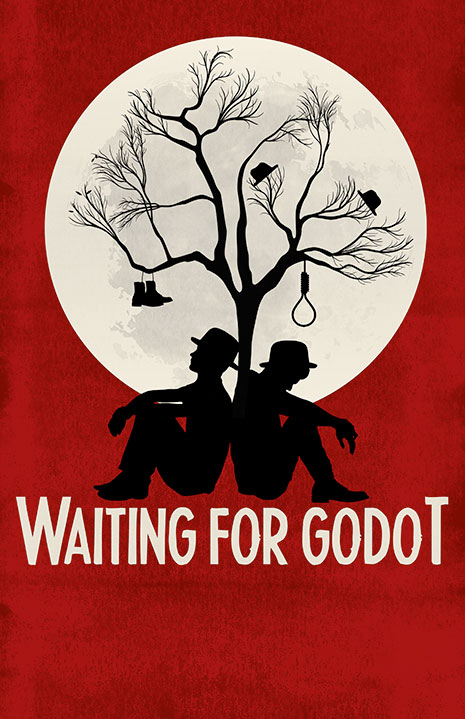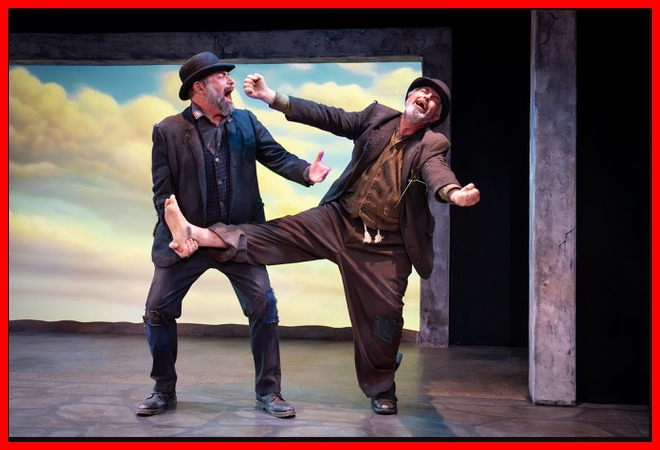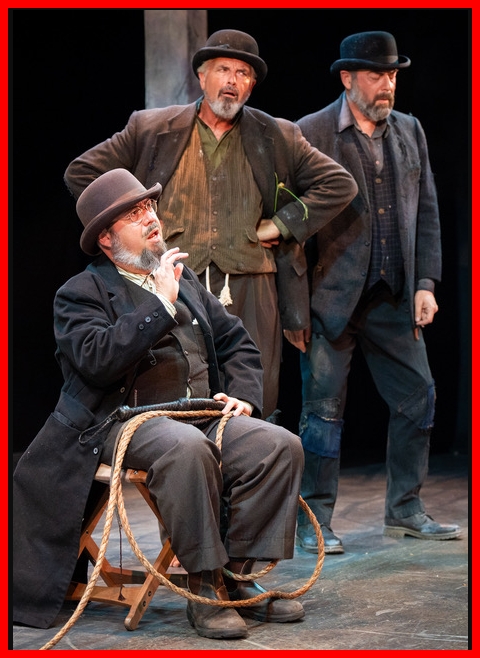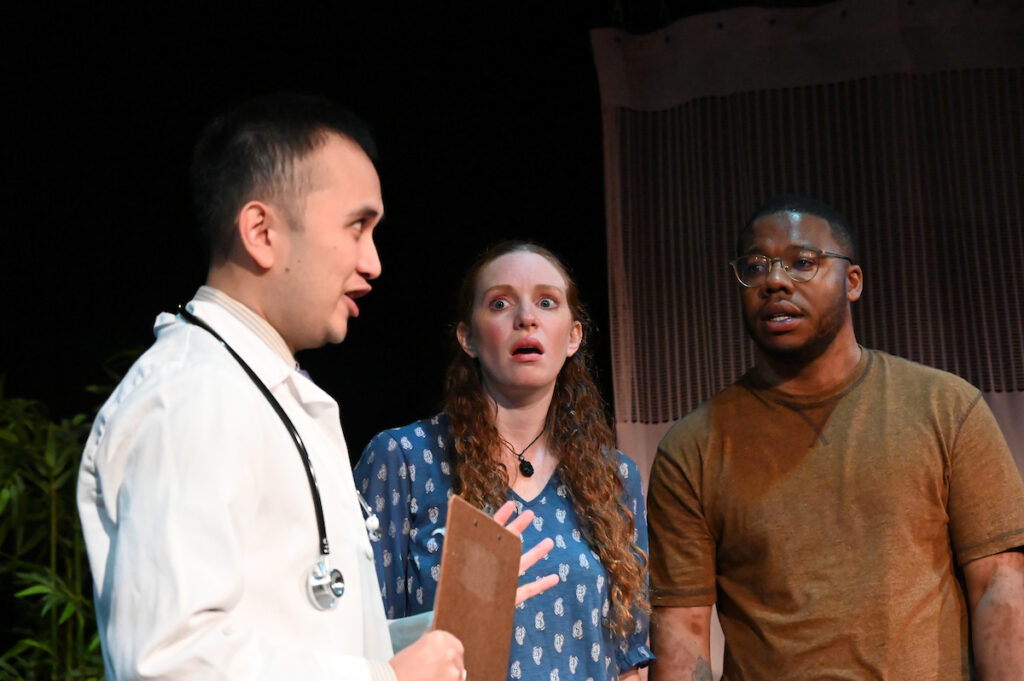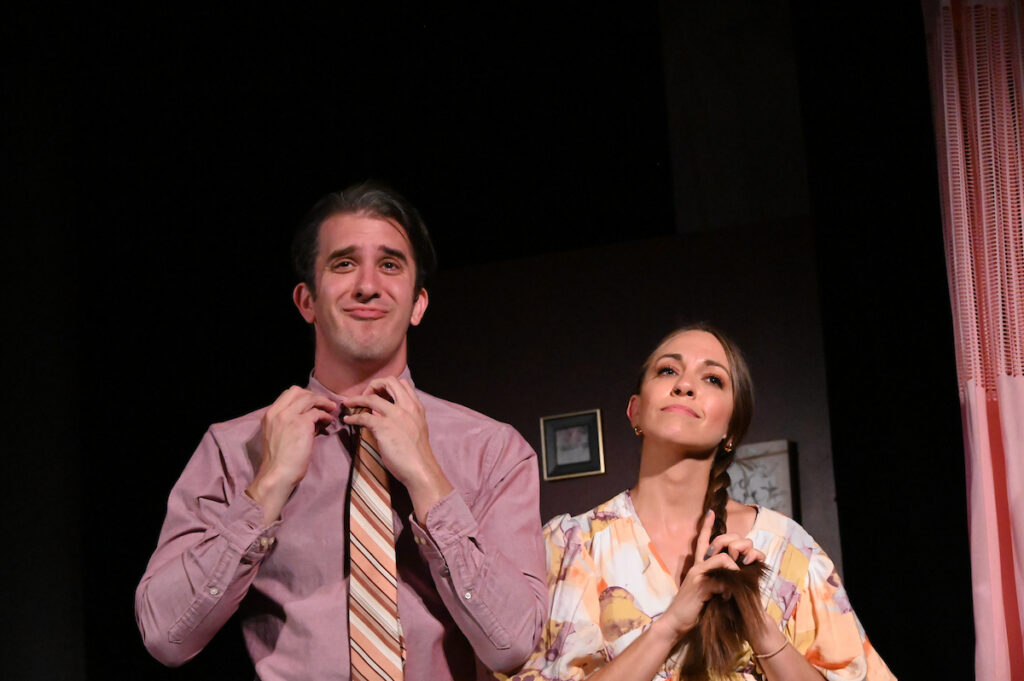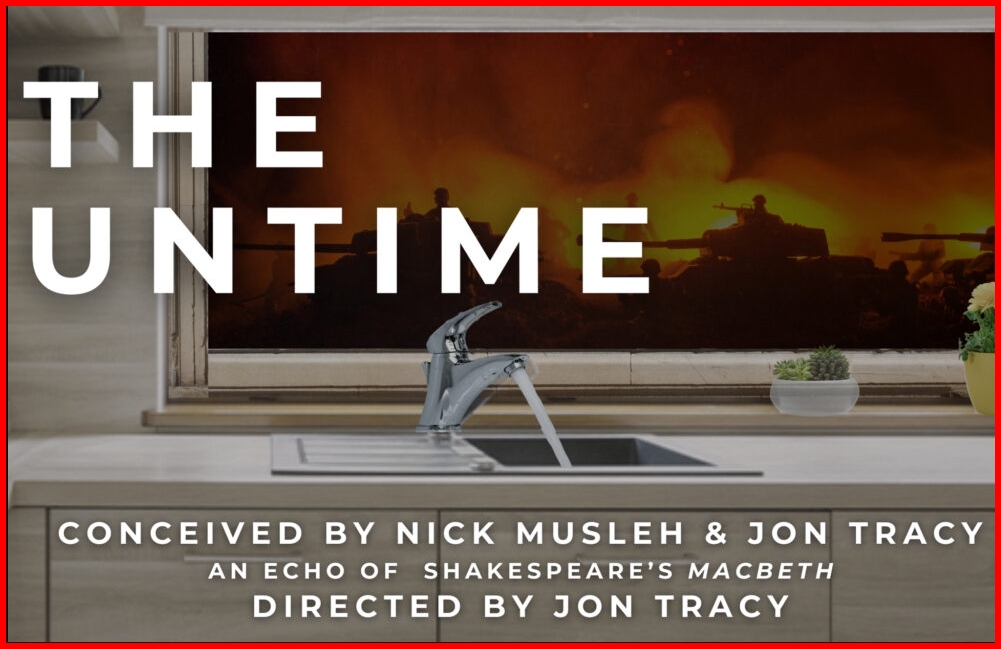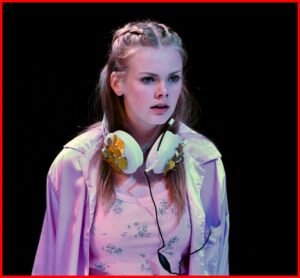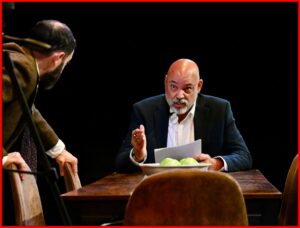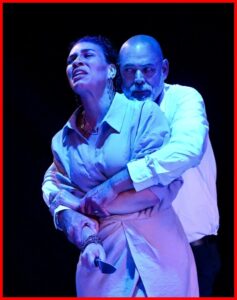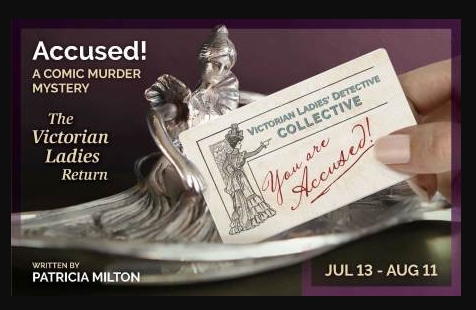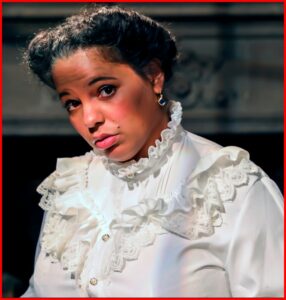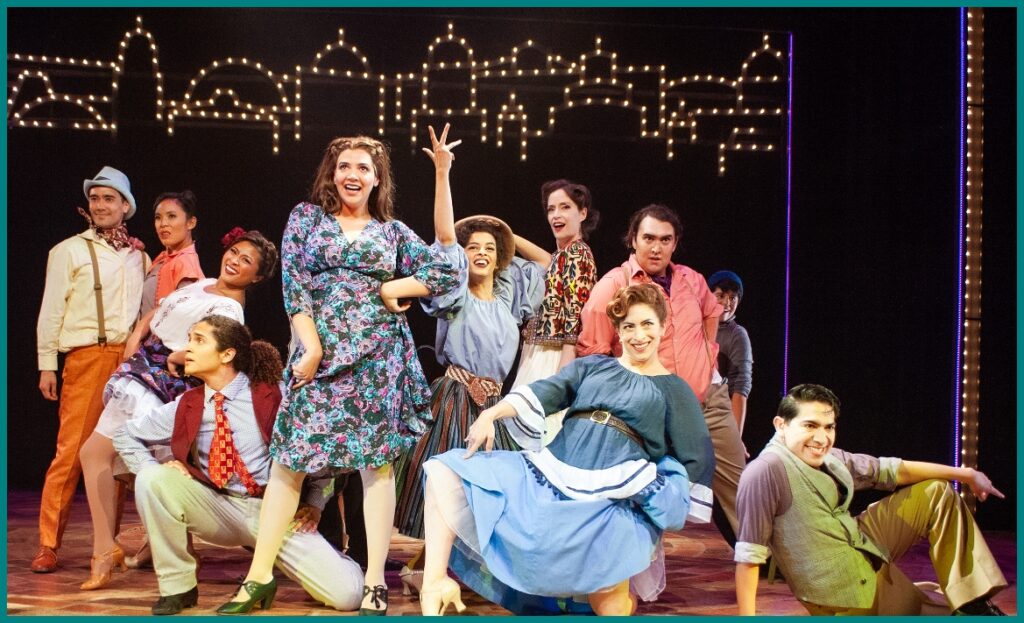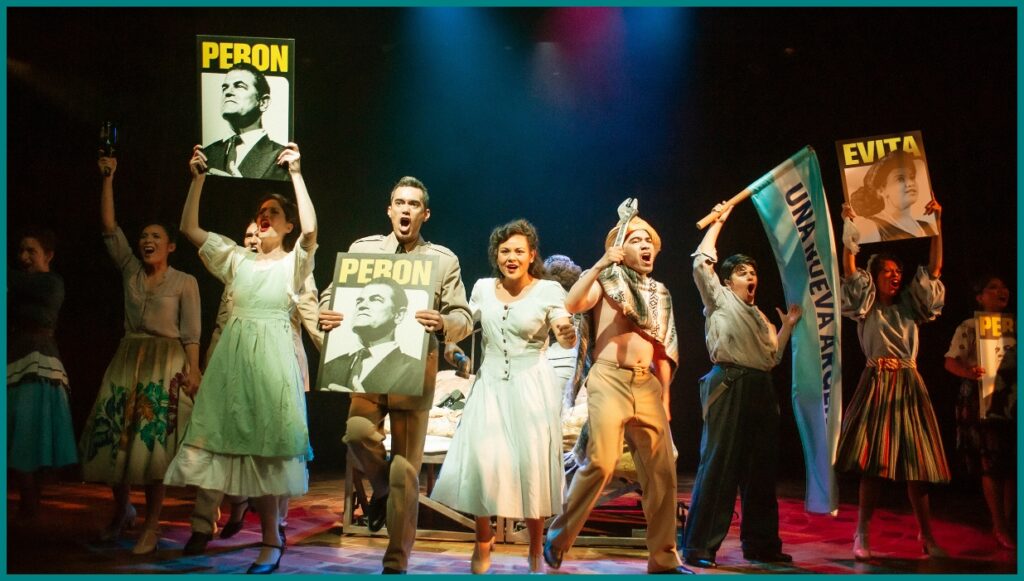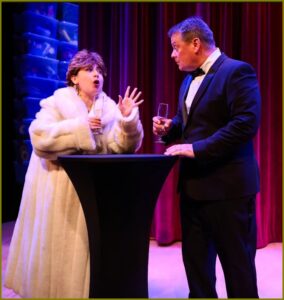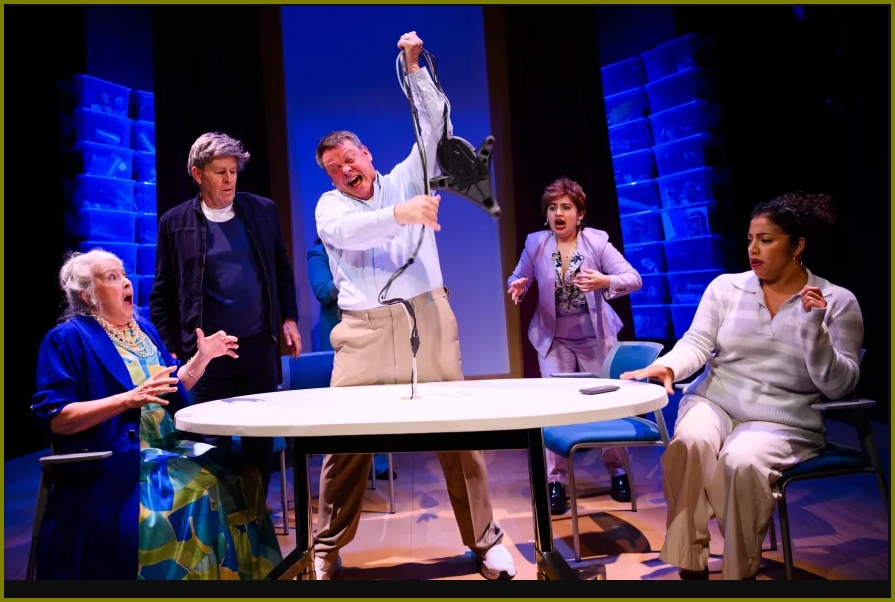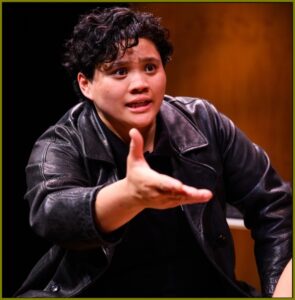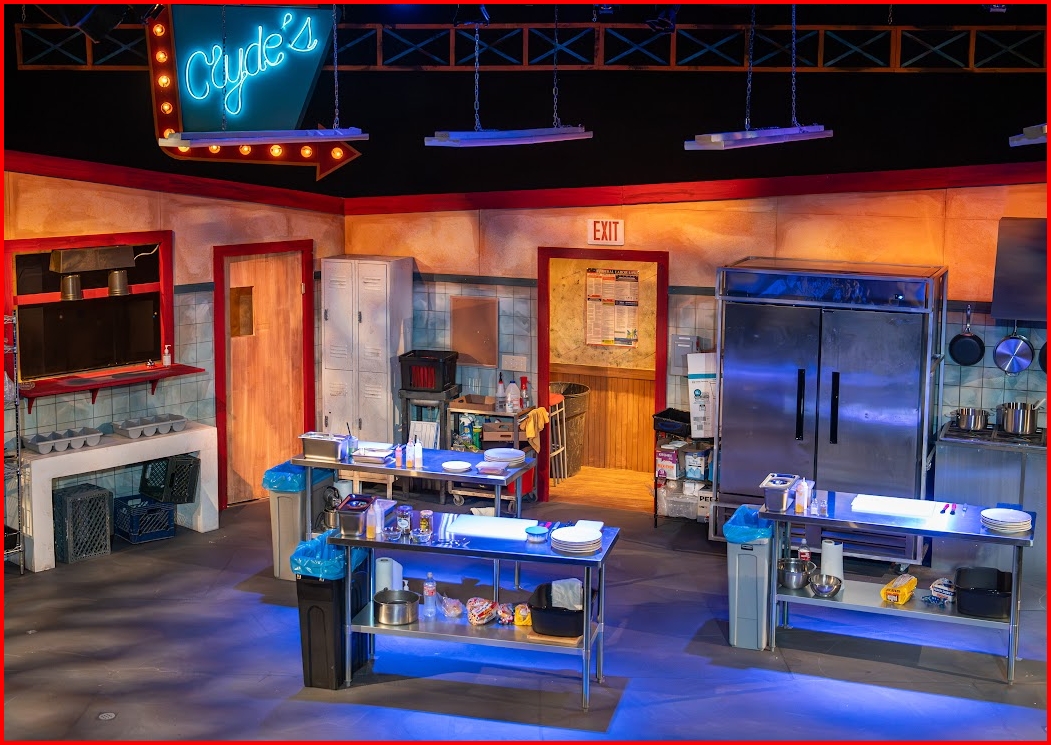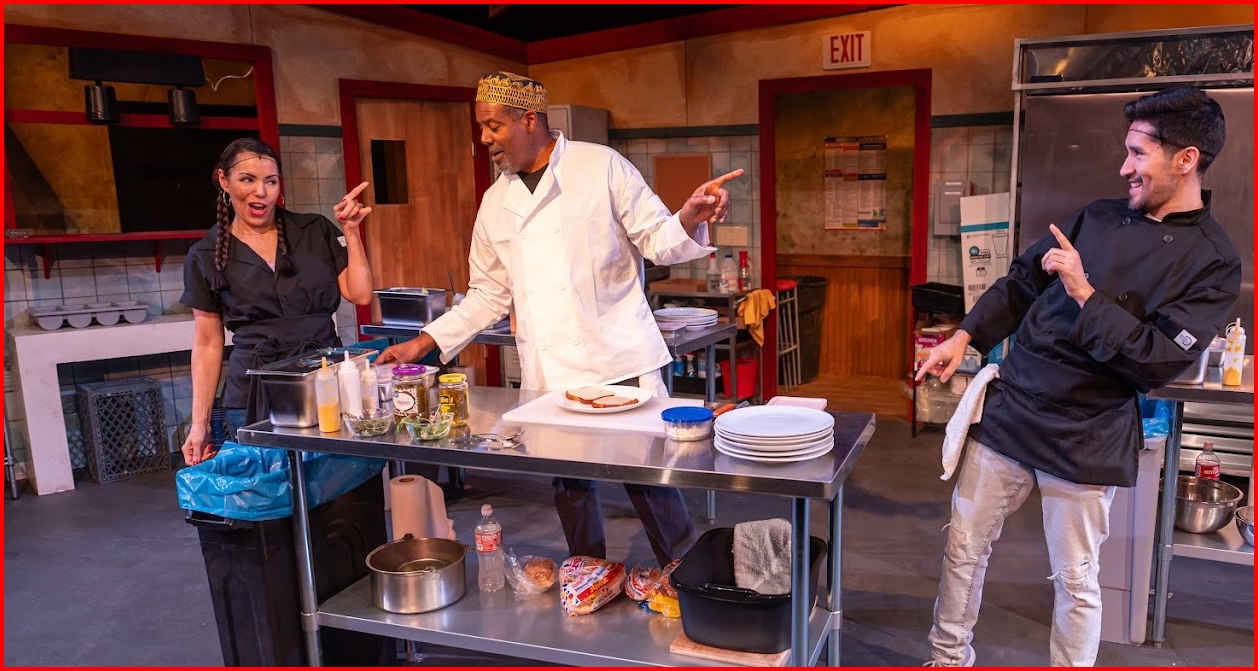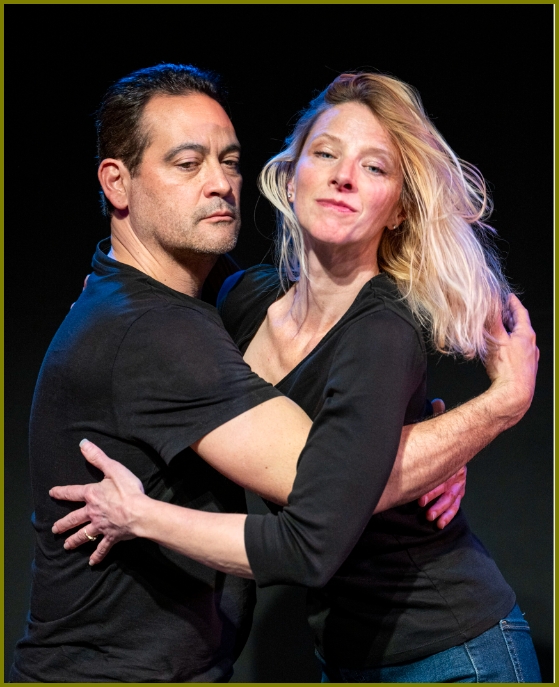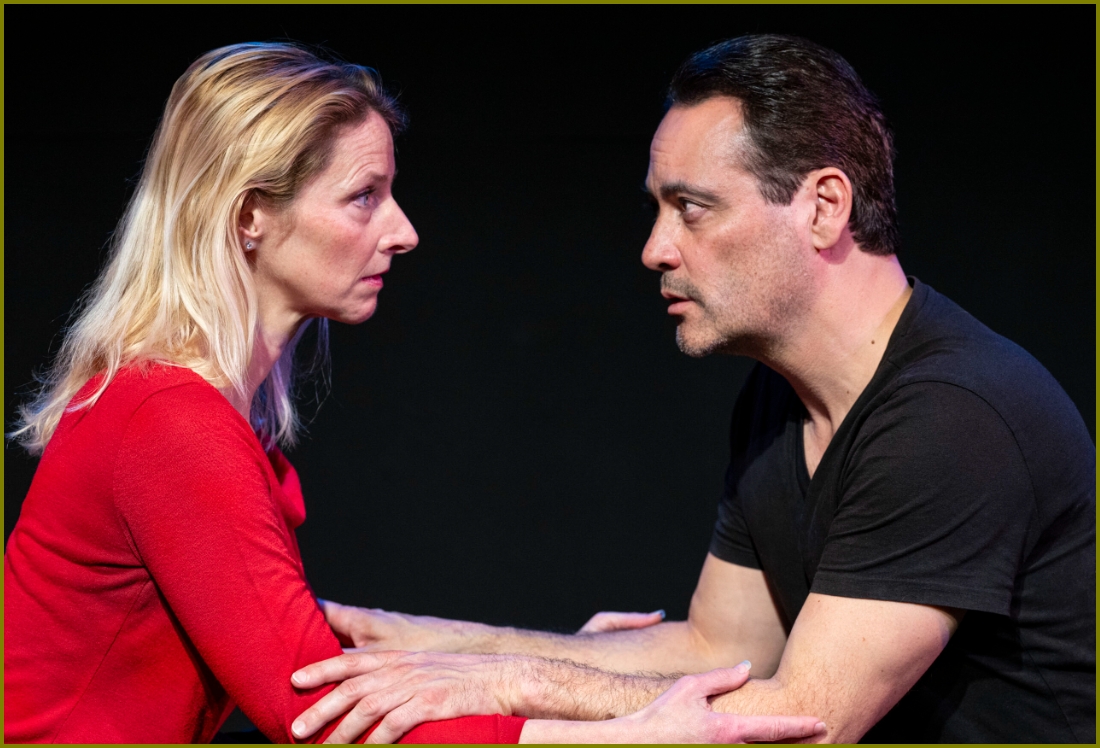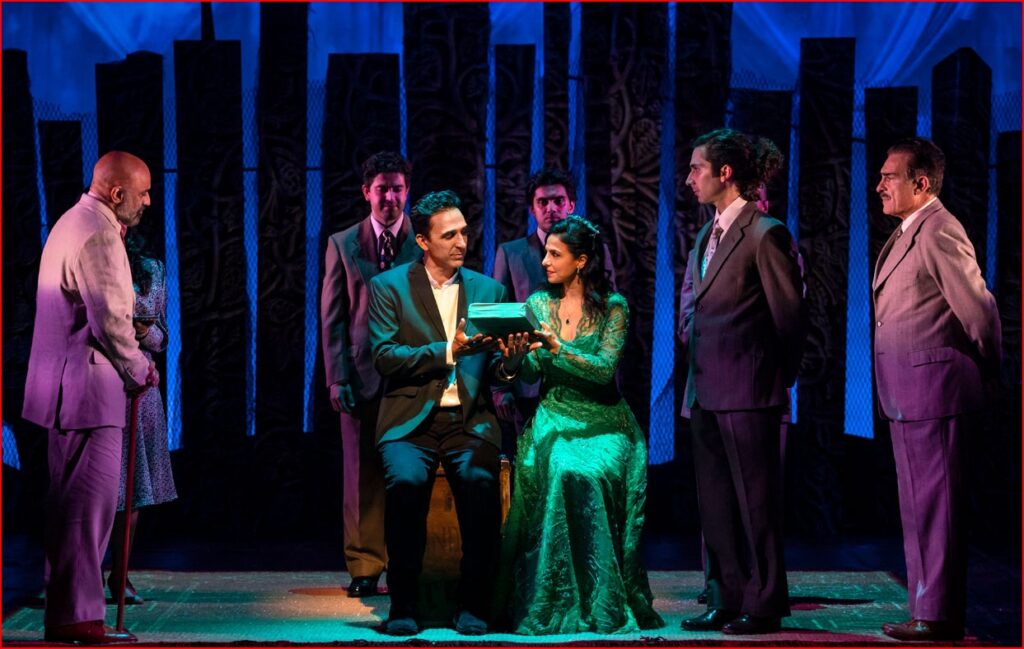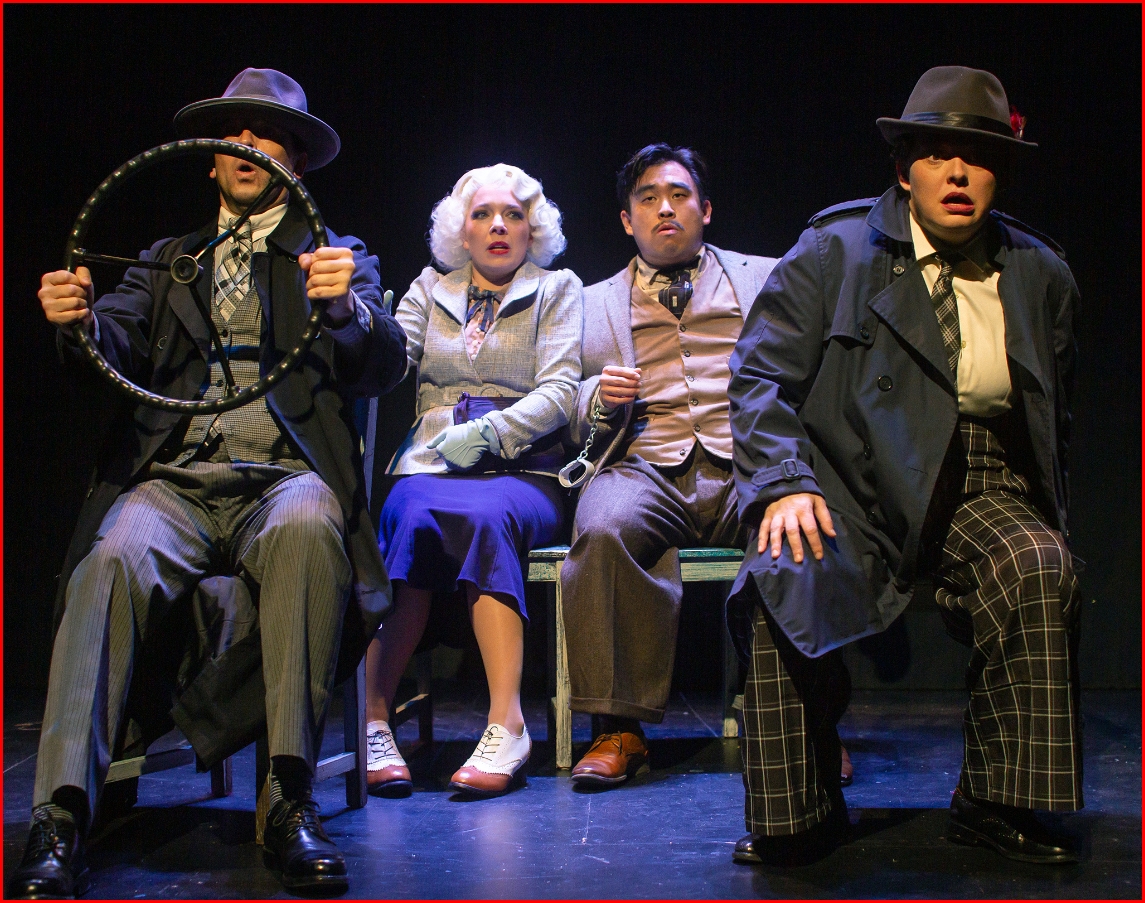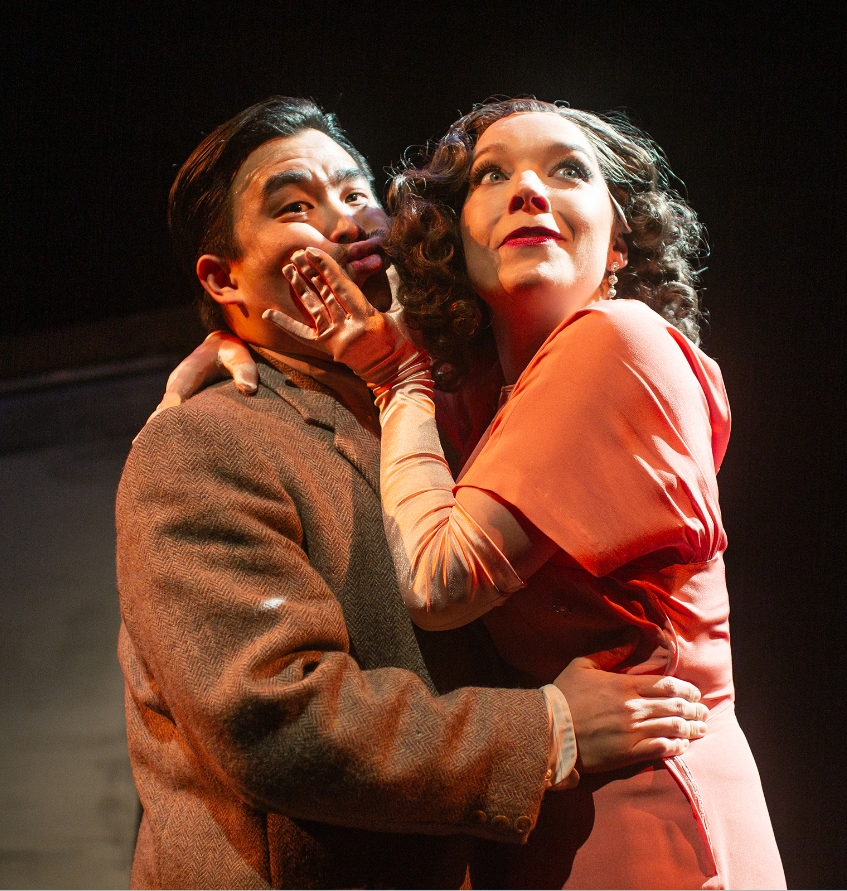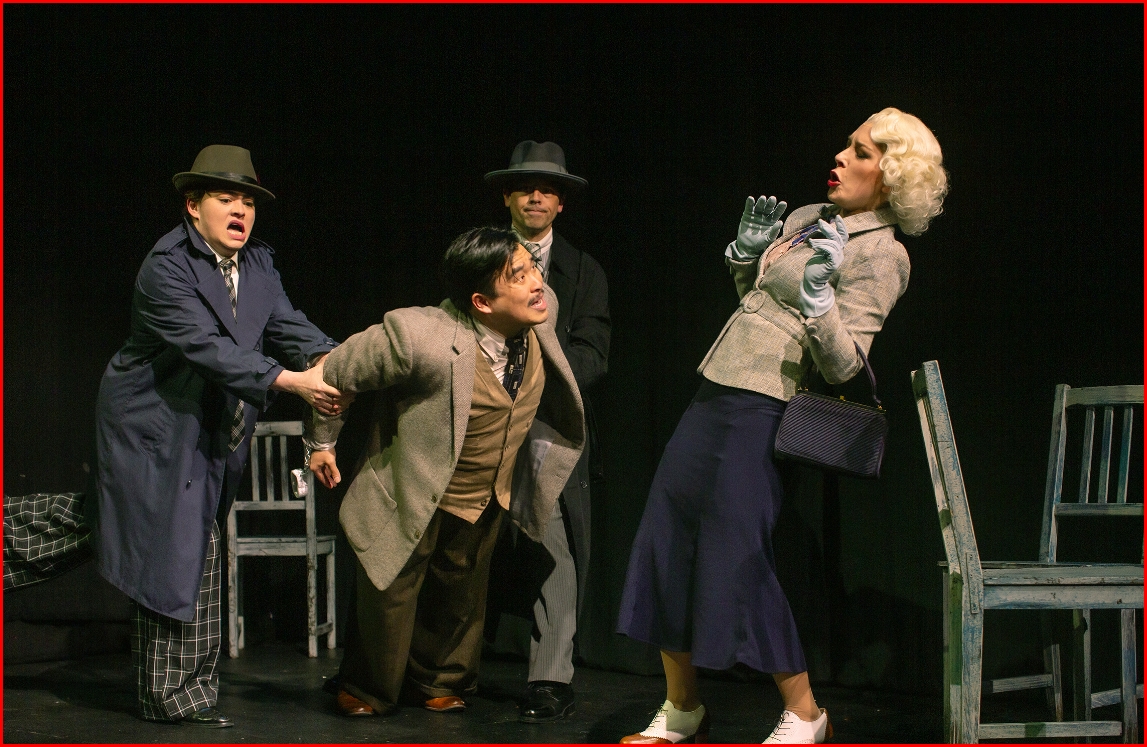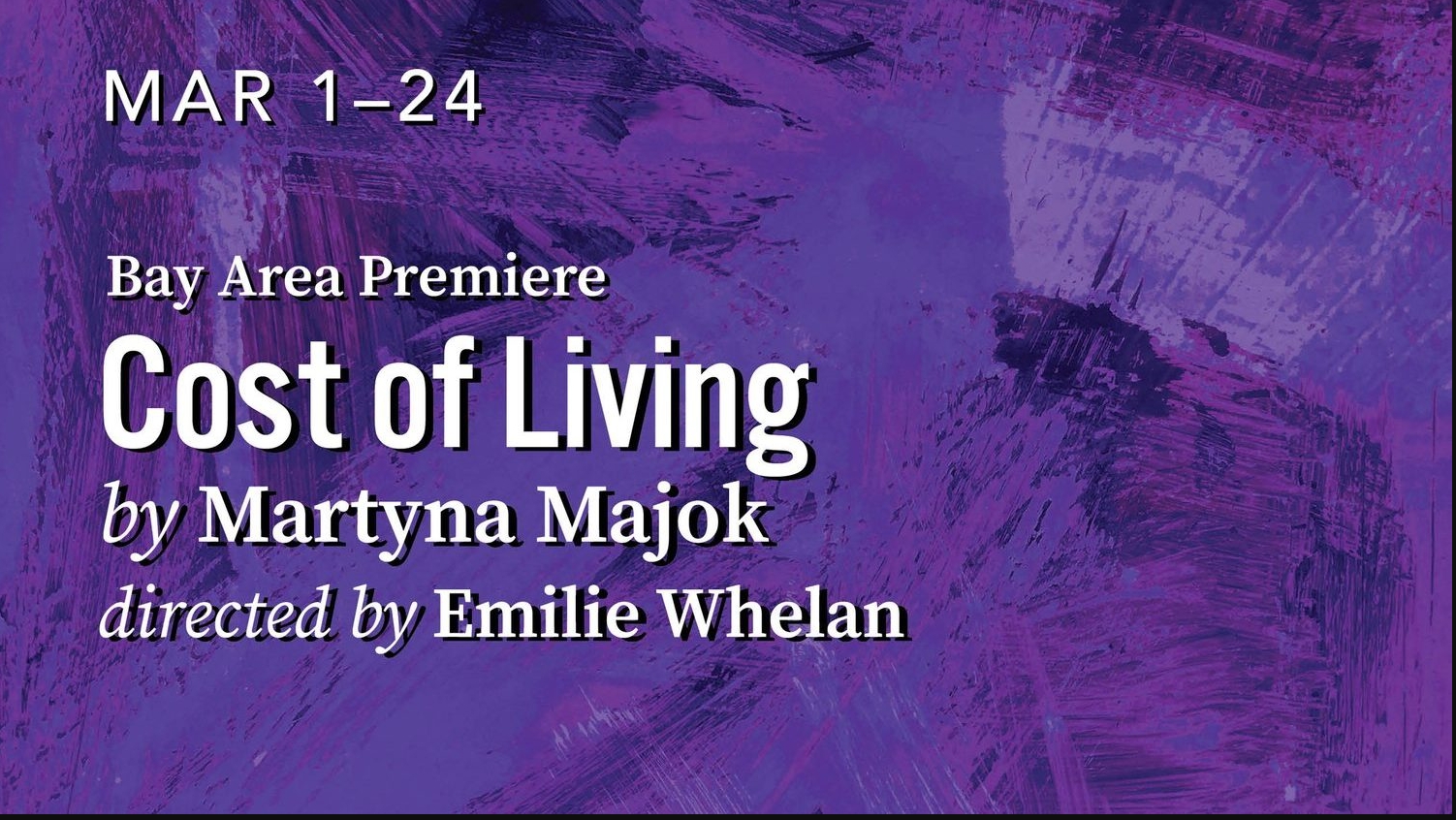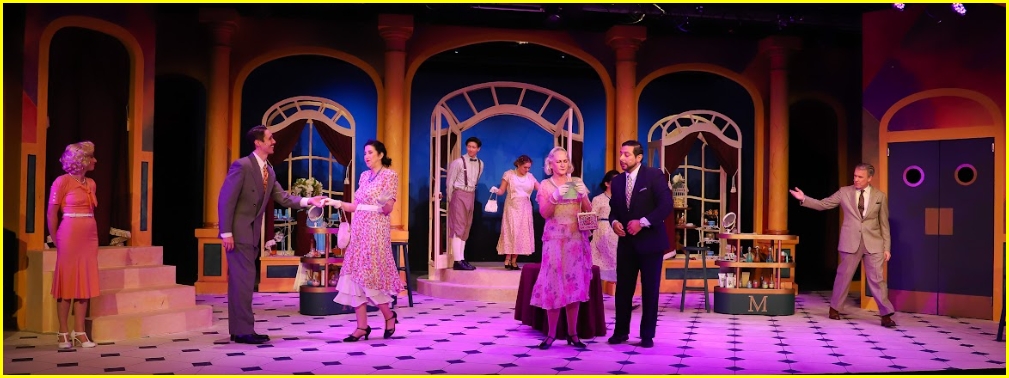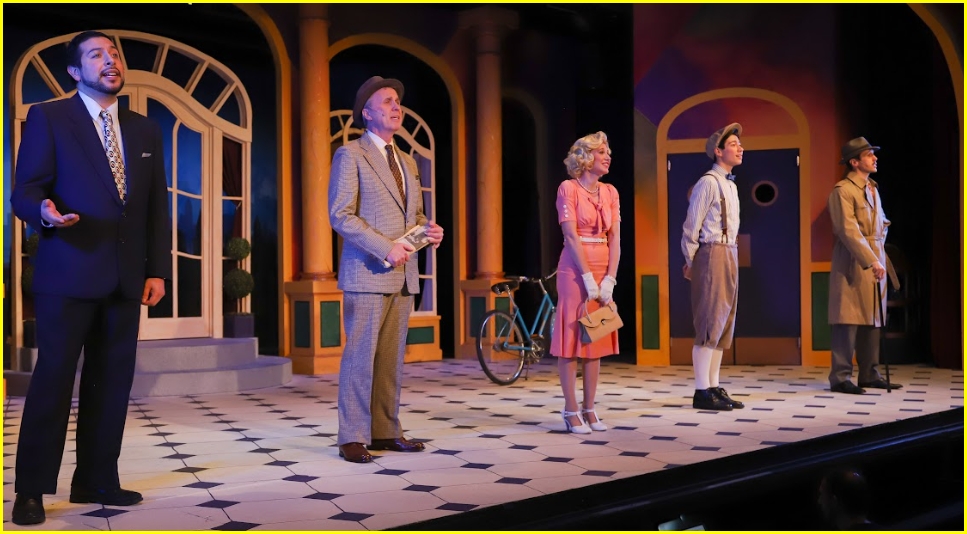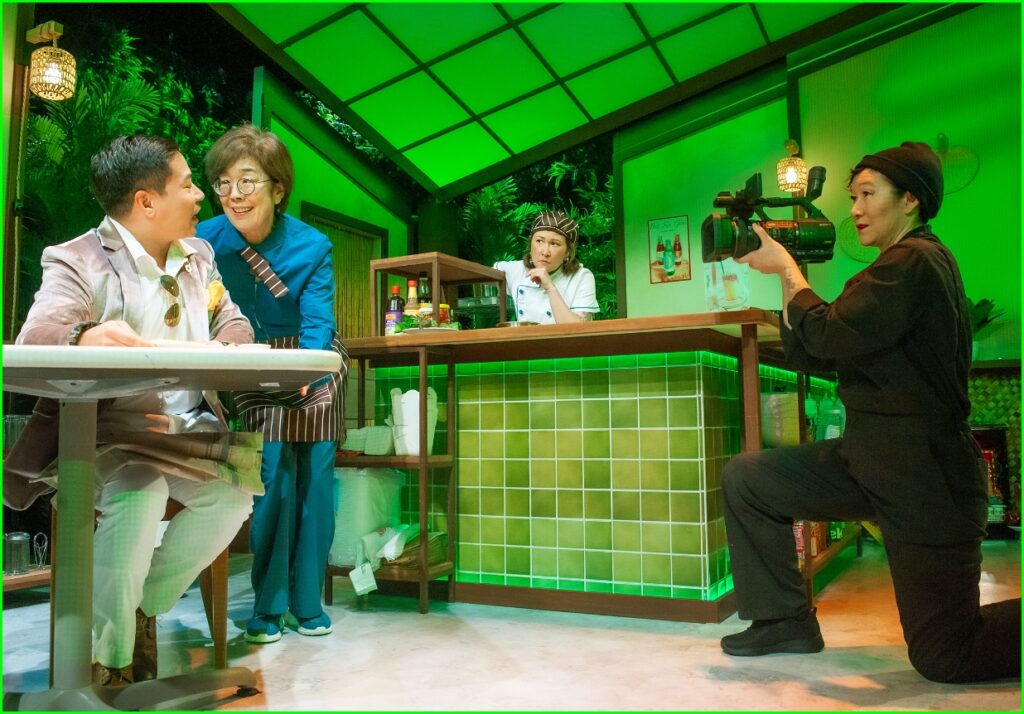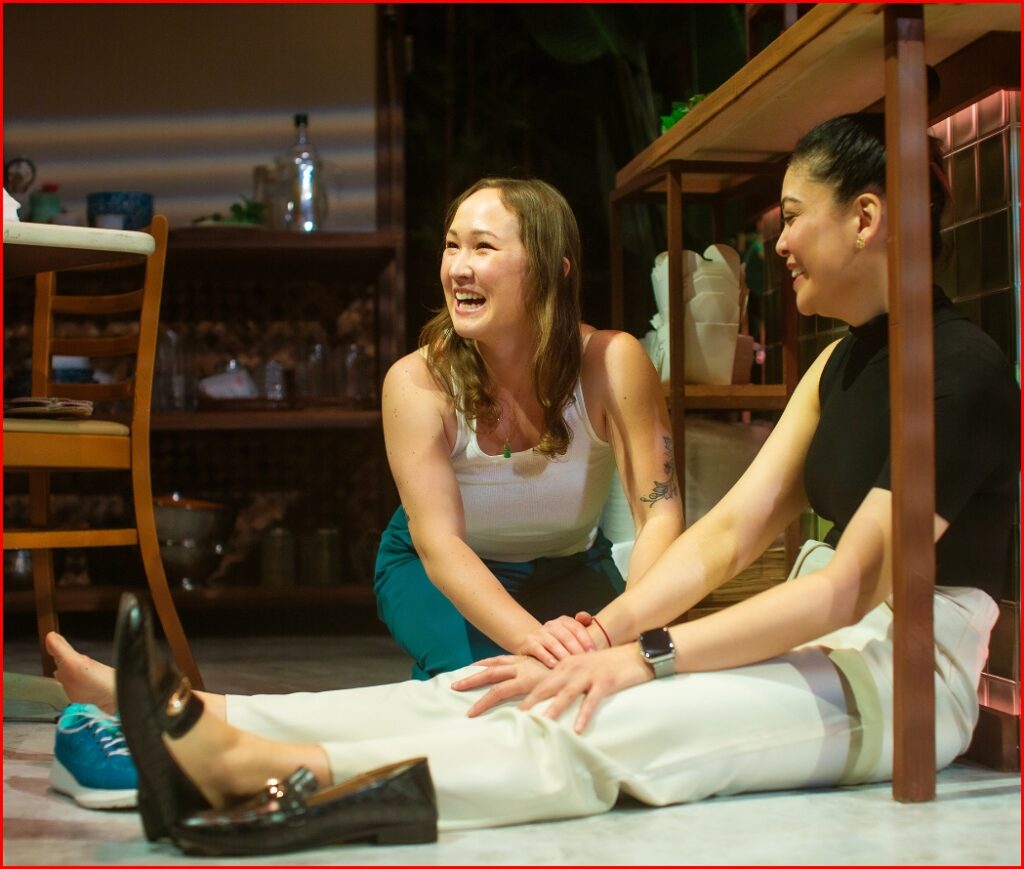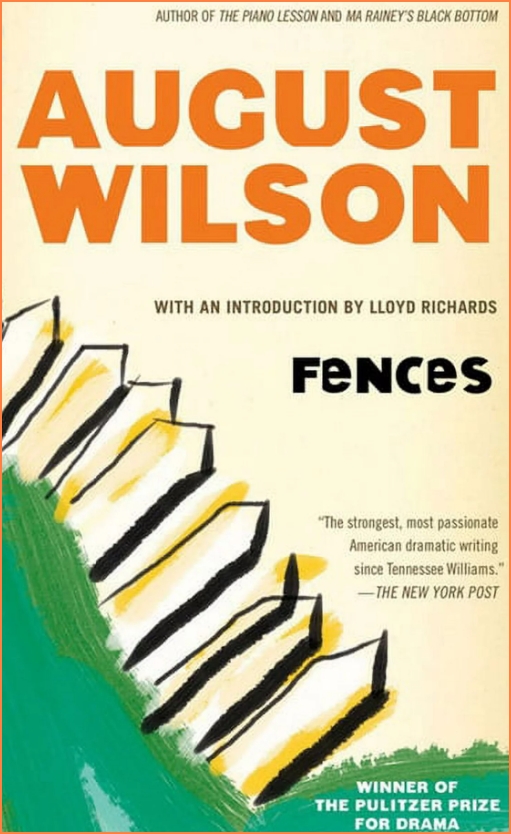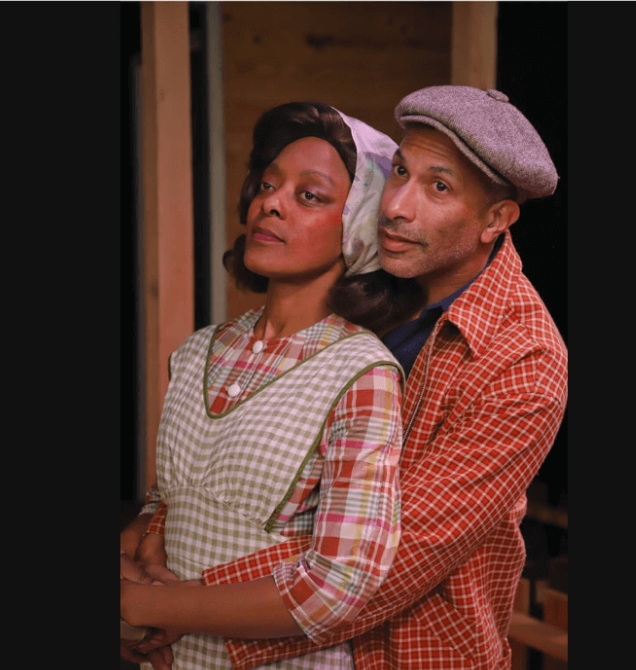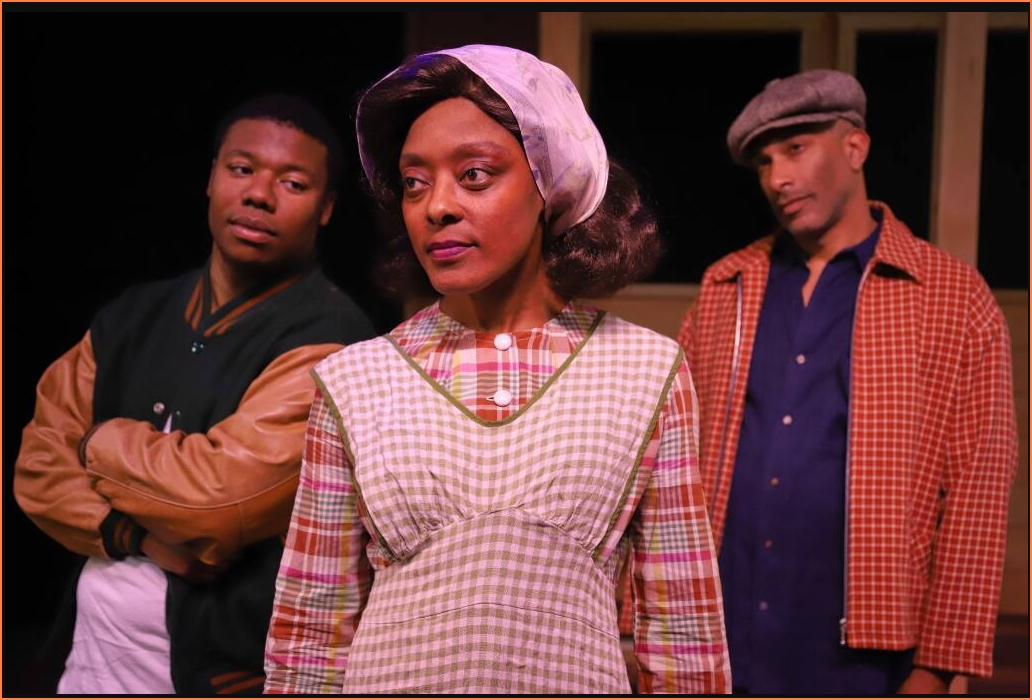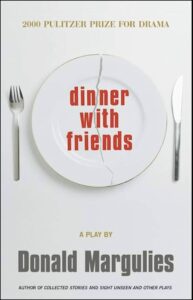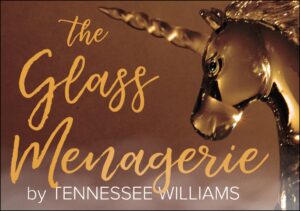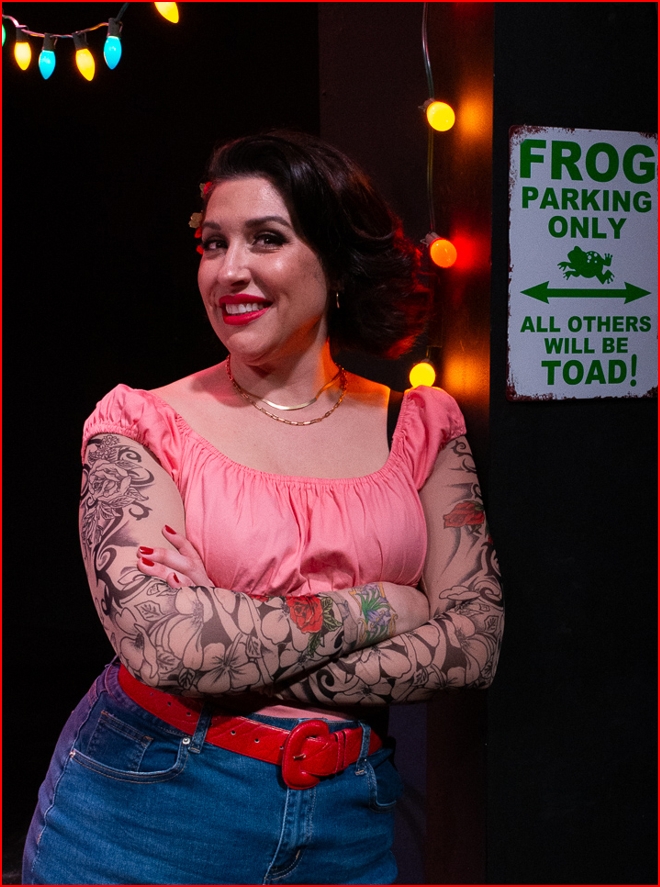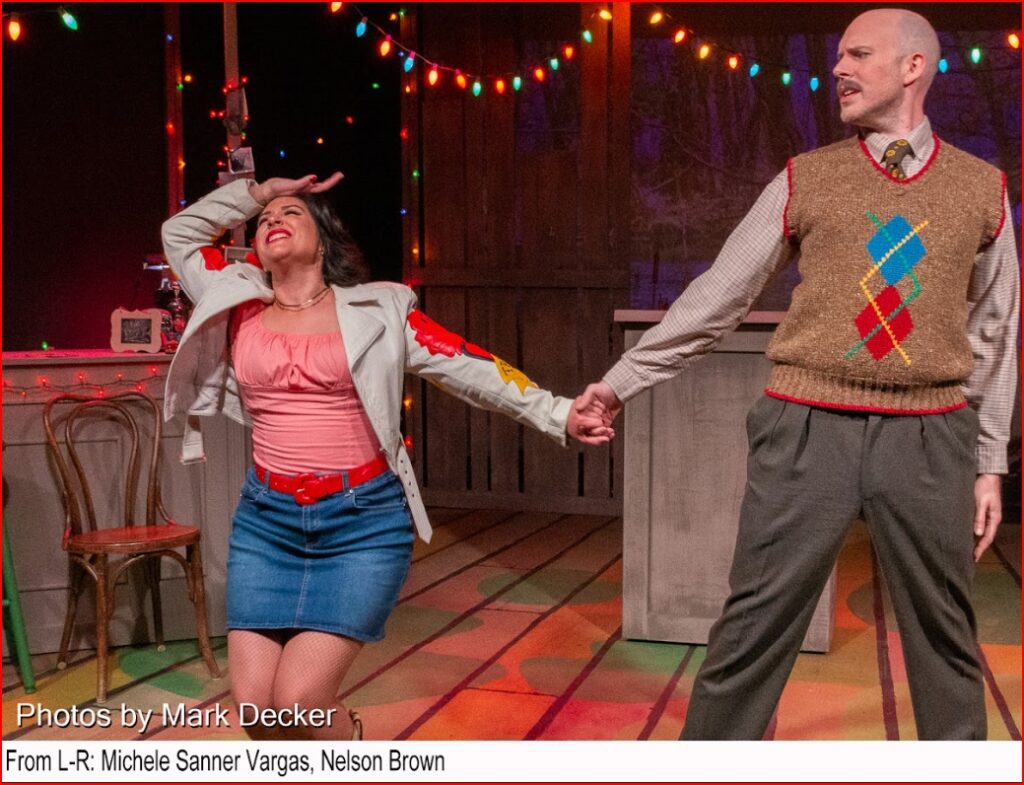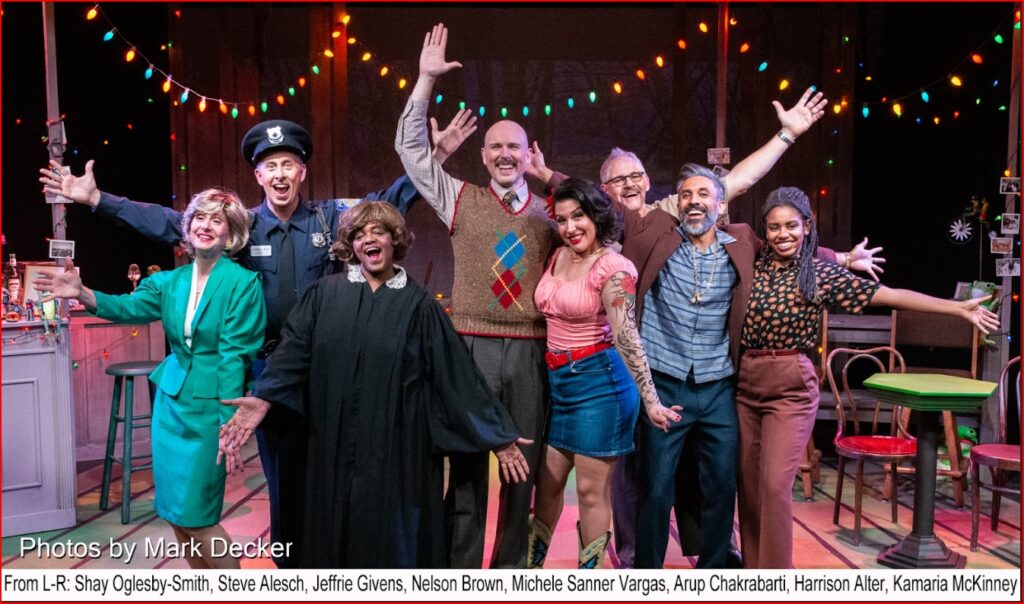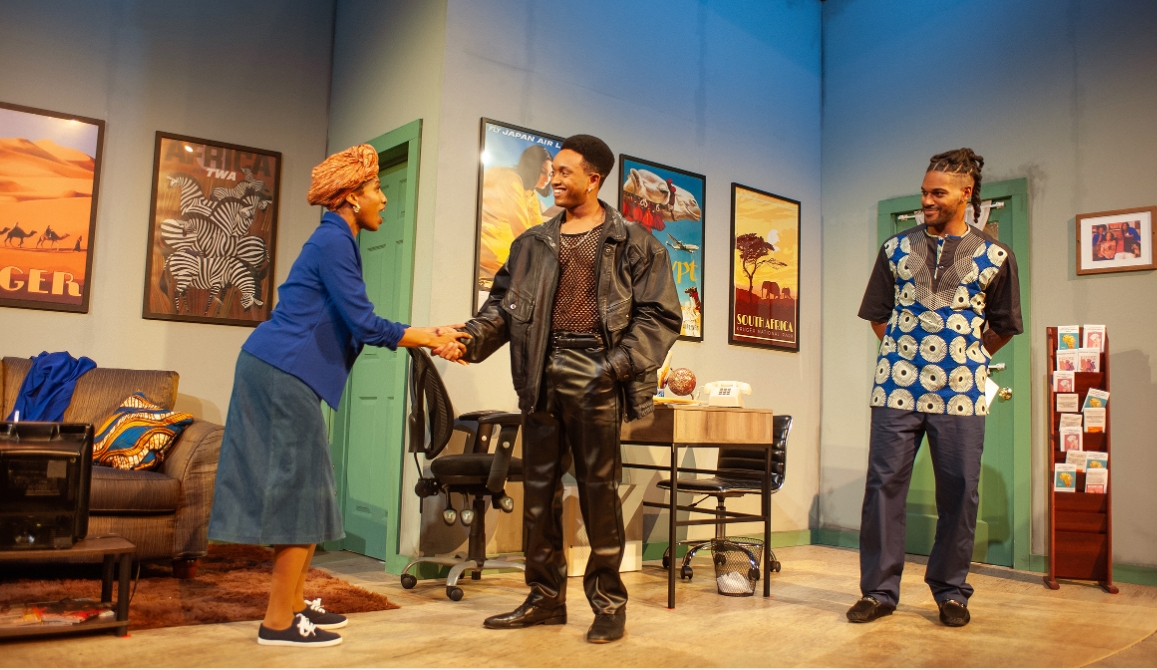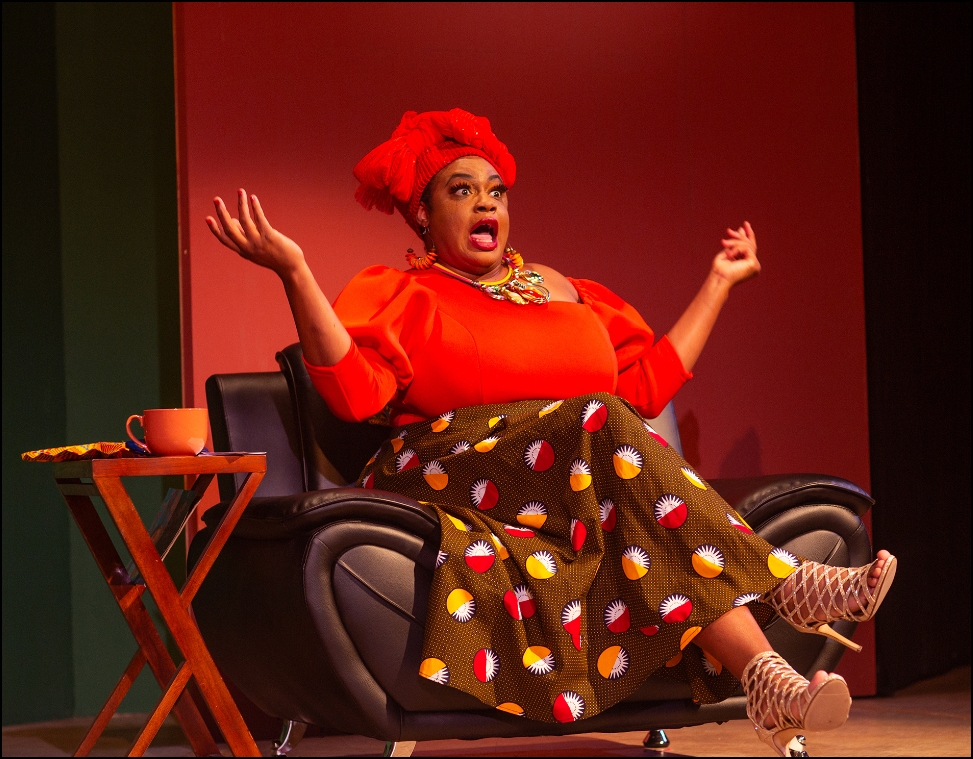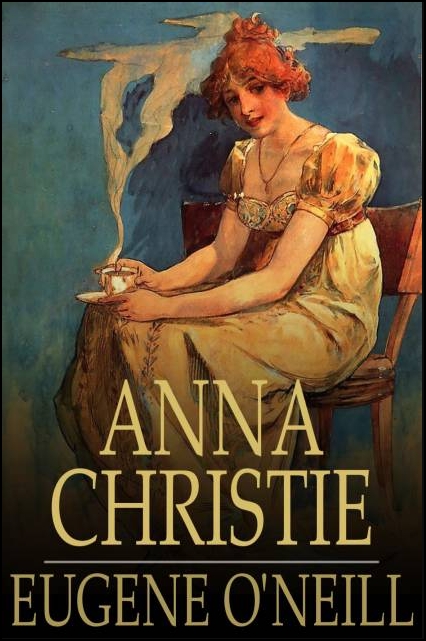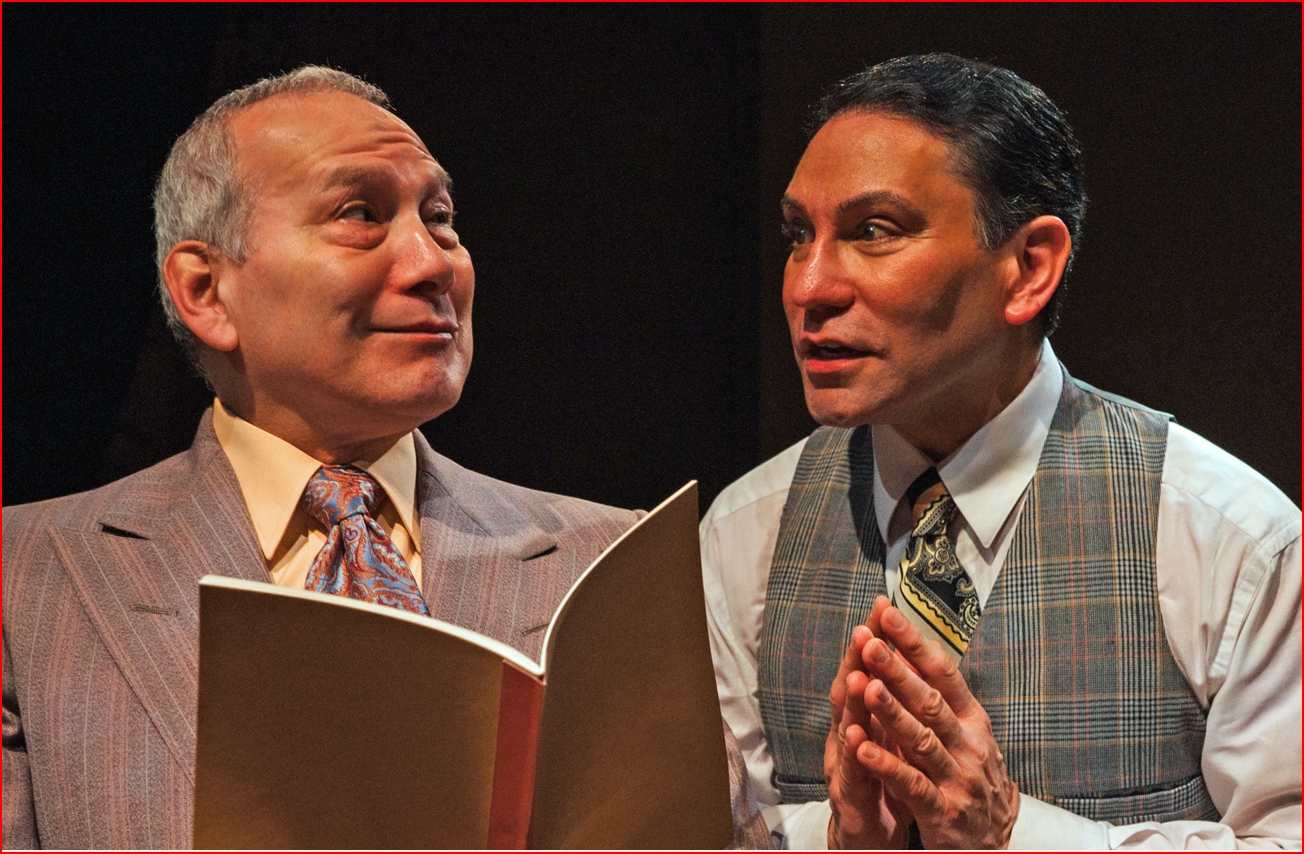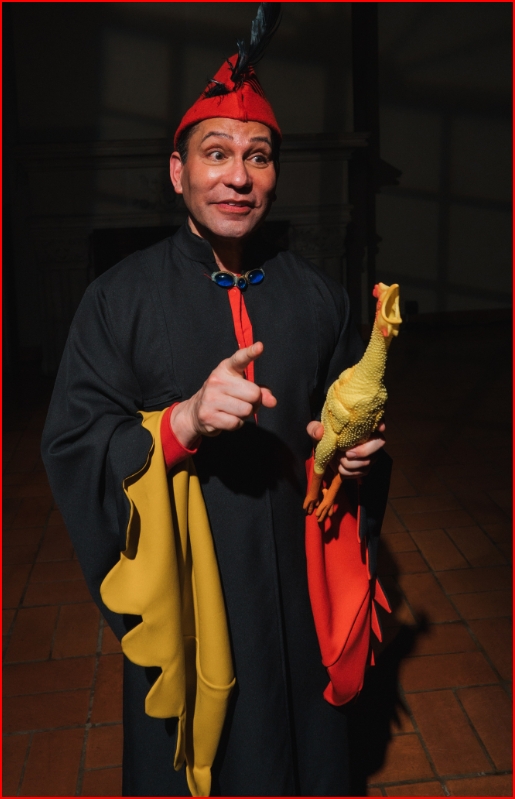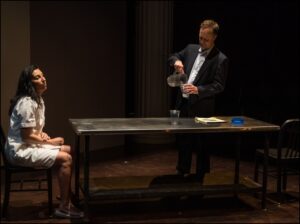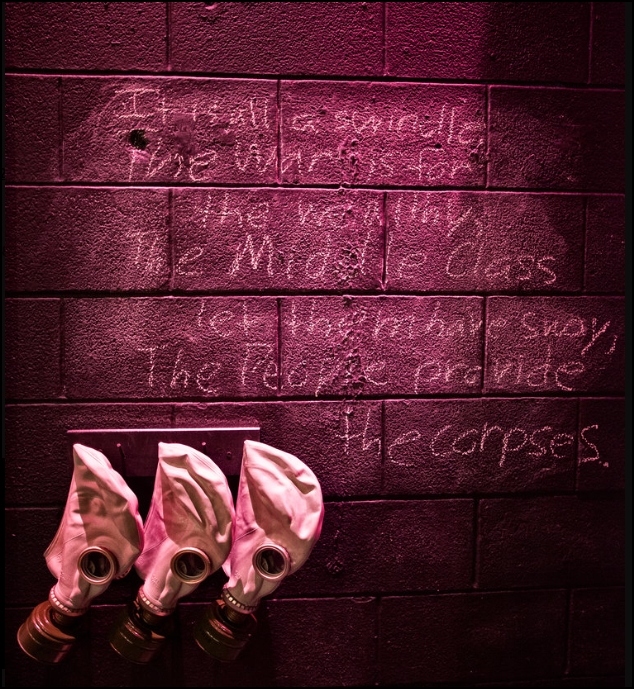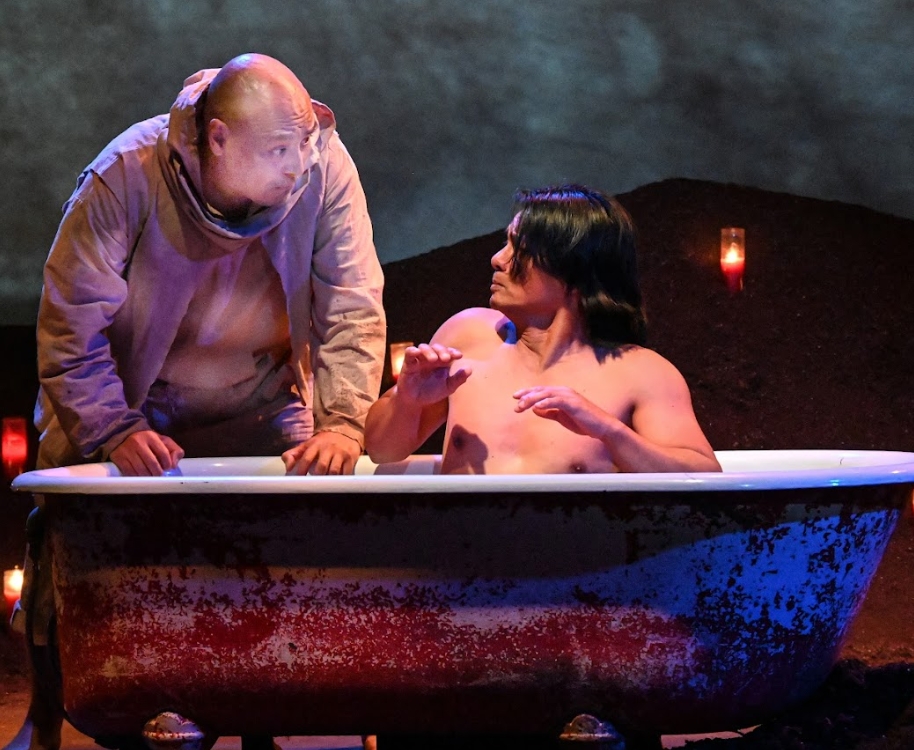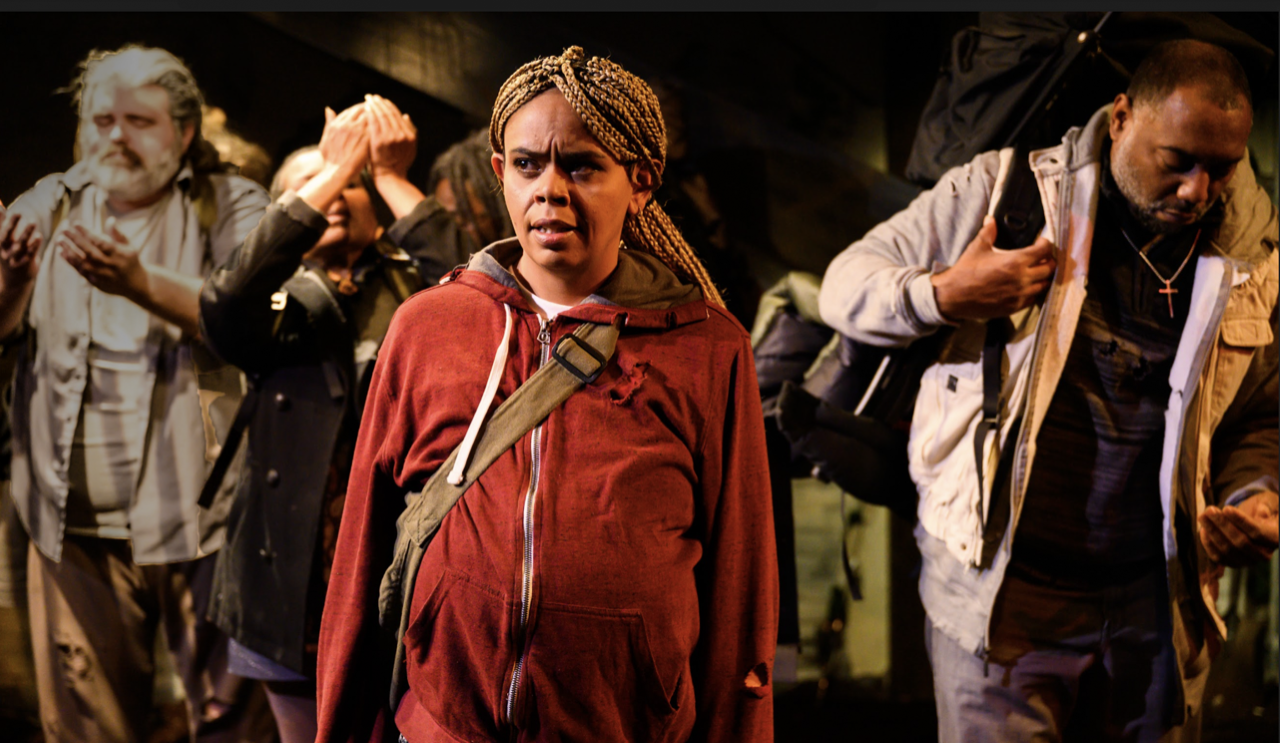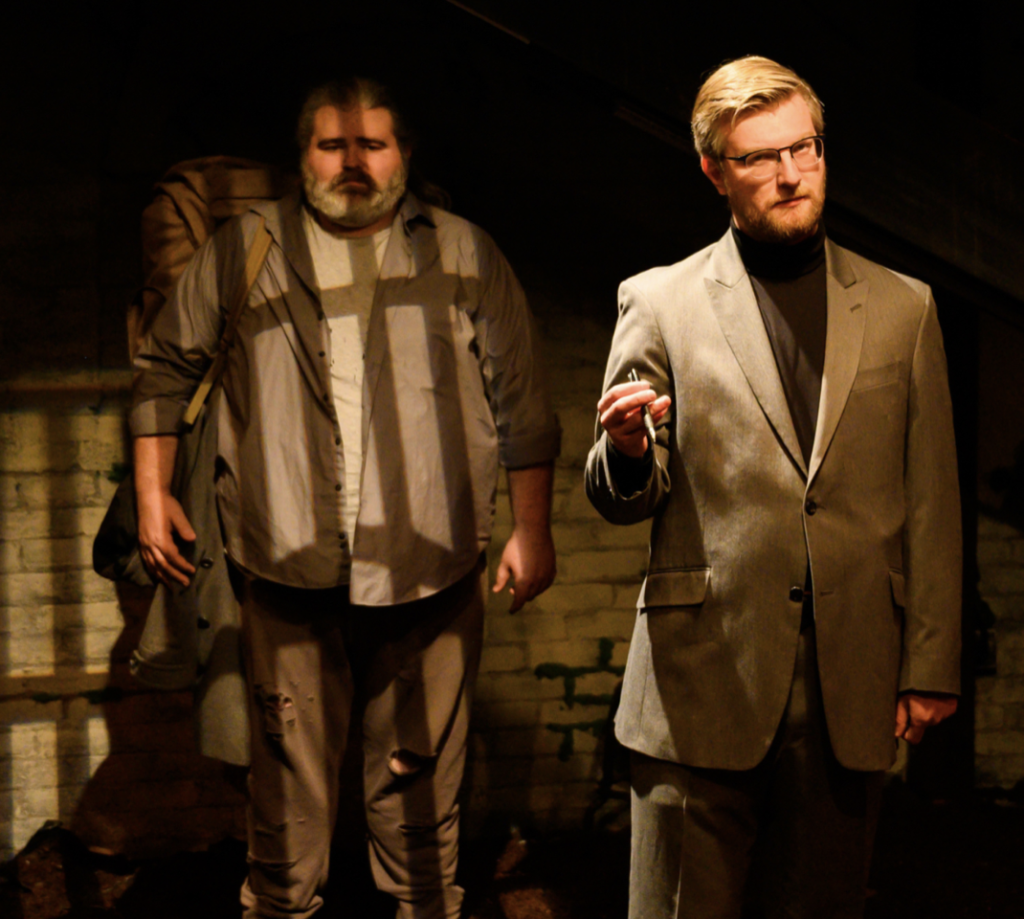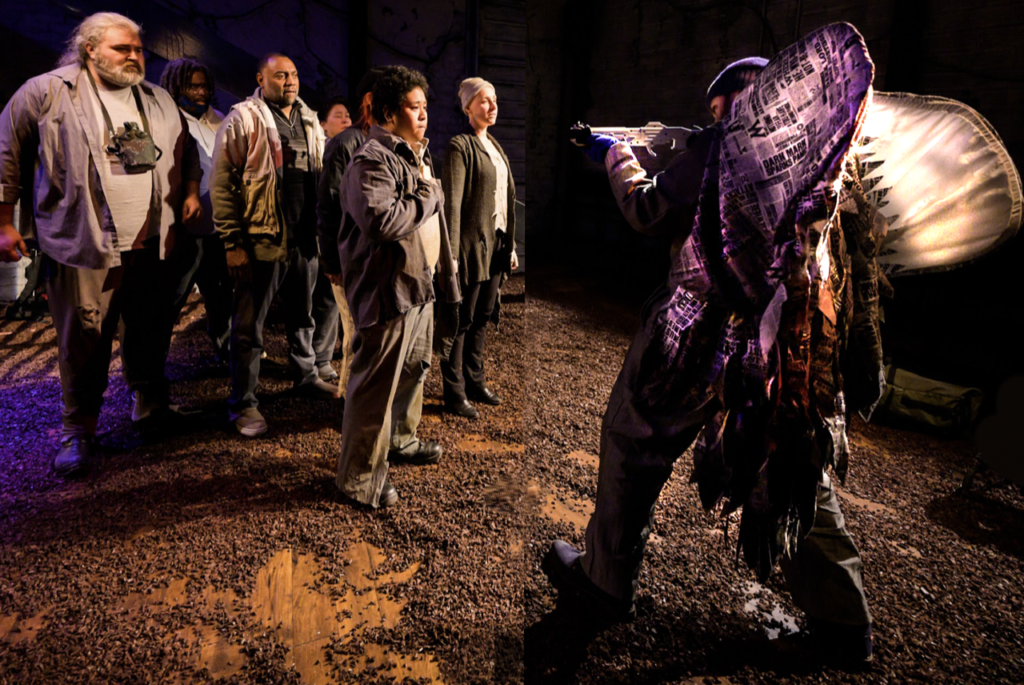By Susan Dunn
Sometimes we need a simple story with archetypal and eccentric characters to raise our spirits and whisk us from pesky daily issues.
Crossing Delancey by Susan Sandler is just such a vehicle. Eminently so! It surrounds us with a New York Jewish world where home cooking, kugel and tagelach, and occasional bottled spirits put better faces on loneliness and bonding.
Its mission is to solve Grandma Bubbie’s dilemma. How can she lead her reluctant granddaughter Isabel (Lisa Morse), who has left the Lower East Side for the more upscale and cosmopolitan atmosphere of Uptown, into a normal Jewish marriage? Bubbie and her henchwoman, Hannah, the matchmaker (Jennifer S. McGeorge), and Sam, the pickle-vendor (Mark P. Robinson), are up to the job.
” … a marvelously oiled feel-good machine …”
As stage lights come up, Isabel is performing a comedic hair-plucking surgery on her grousing Bubbie. With a theatrical vanity that emerges and re-emerges through the play, Bubbie – thanks to the raucous and inspired acting of Tamar Cohn – continues to entertain us, initially to the detriment of her subdued, intellectual, and prosaically attired granddaughter.
Bubbie’s wiles and maneuvers are well-intended but romantically cool — Isabelle has visions of a different and more culturally independent life, which we quickly learn is based only on fantasy. Well played and embodied by Lisa Morse, Isabelle lives alone and works in an uptown bookstore where her daydreams can explode on desirable-looking local authors who have a stake in visiting the bookstore. The more Bubbie and Hannah scheme and push, the more Isabelle becomes entrenched in her author du jour.
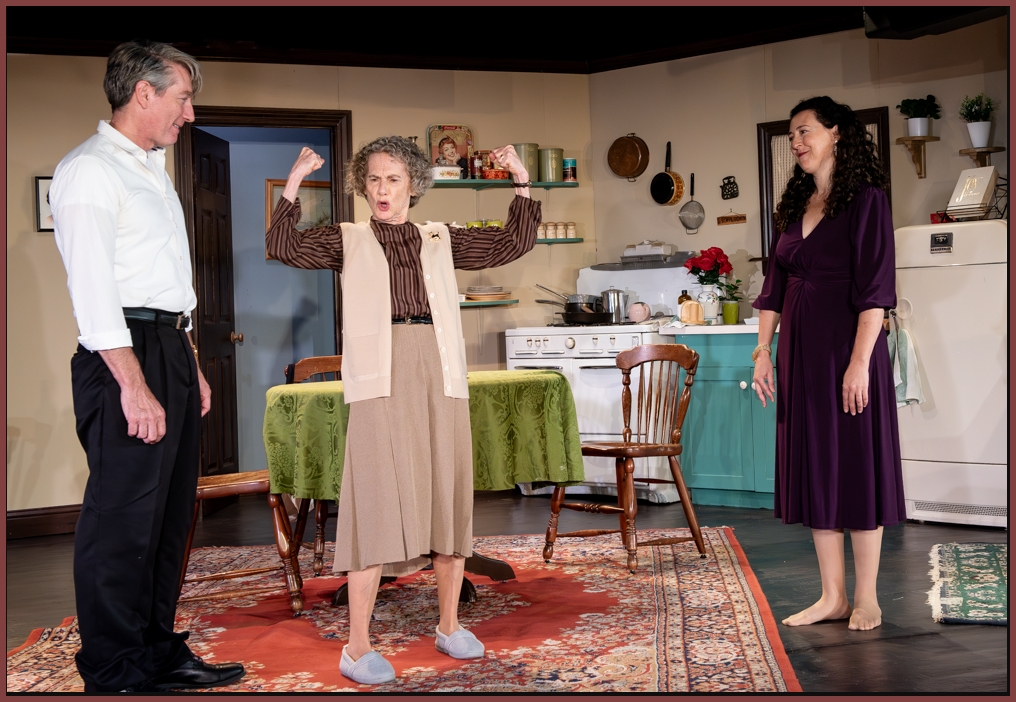
In a stand-out scene, Isabelle finds such entrenchment in Tyler, a pseudo-British-accented Steve Price, who is stopping by the bookstore. He finds she has read his latest book three times and is immensely flattered. The narrative morphs from their casual banter into a lights-dimmed fantasy world of Isabelle’s imaginings, where she is dancing with and is suddenly the object of Tyler’s affections. As the scene returns to normalcy, Isabelle is inspired to pursue Tyler with her own schemes for winning this impressive man.
Meanwhile matchmaker Hannah is pushing a very different romantic candidate, Sam, who has inherited his father’s pickle-vending business. In a first meeting, Sam is ignored or outright put down by Isabelle despite his attempts to soften her resistance. The pickles are a downer in Isabelle’s hierarchical world, but Sam has outstanding charm, patience and attractiveness that win everyone over. He also gives her advice on changing her perspective, and despite being rejected, he gifts her with an impressive purchase and ultimately the ability to see her world from a broader perspective.
This reviewer worried that the program’s extensive glossary of Jewish words and phrases meant the dialogue was going to leave me in an ethnic lurch, but the story unfolds seamlessly through impeccable acting, gestures, props, songs and the occasional breaking of the 4th wall. The Jewishness of the characters comes across with a real authenticity leavened with humor.
The set is ingeniously used for swapping scenes between Bubbie’s house, the bookstore and side scenes of engagement, with choreography that keeps the action fluid and cogent. Costuming changes are continuous and keep the visual action lively with each character defined by clothes, especially Isabelle, who wears the same rather dowdy outfit into Act 2 and verges on tempting us to run up and rip it off her.
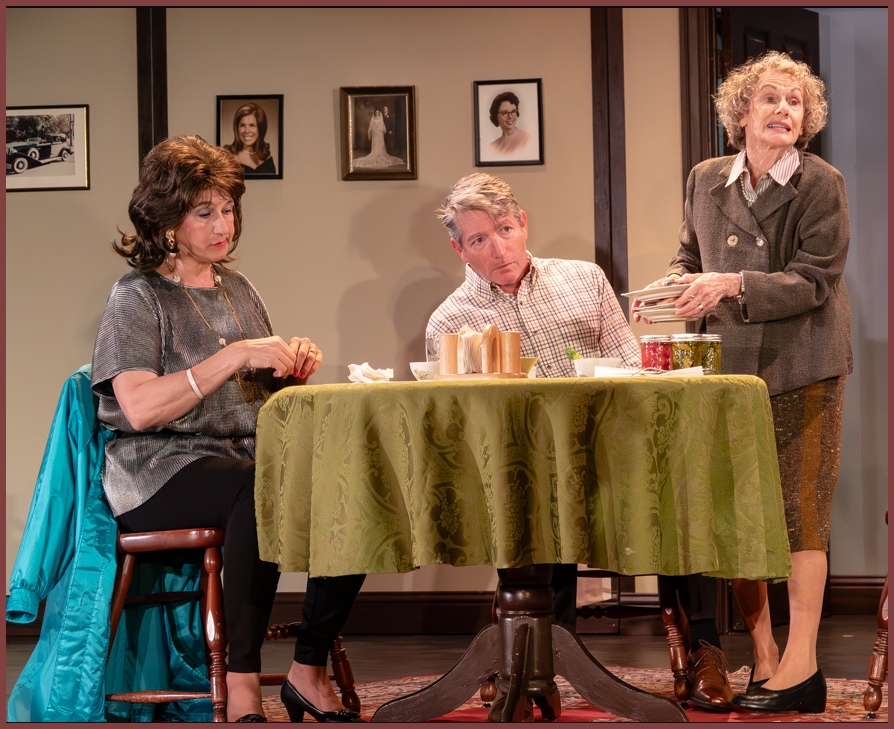
Kudos go to Hannah’s mod-Jewish matchmaker ensembles which echo her brassy voice and in-your-face personality. Lighting by Jim Cave helps change scene moods, and spontaneous Jewish songs and other background standards (sound design by Billie Cox) help pave the way for love to flower.
With superb acting all around, and exceptional range, force and truth in lead-character Bubbie, this is a comedy to treasure. From start to end, director Adrian Elfenbaum has crafted a marvelously oiled feel-good machine in Crossing Delancey.
-30-
 ASR Senior Contributor Susan Dunn has been on the executive boards of Hillbarn Theatre, Altarena Playhouse, Berkeley Playhouse, Virago Theatre and Island City Opera, where she is a development director and stage manager. An enthusiastic advocate for new productions and local playwrights, she is a voting member of the SF Bay Area Theatre Critics Circle, and a recipient of a 2015 Alameda County Arts Leadership Award. Contact: [email protected]
ASR Senior Contributor Susan Dunn has been on the executive boards of Hillbarn Theatre, Altarena Playhouse, Berkeley Playhouse, Virago Theatre and Island City Opera, where she is a development director and stage manager. An enthusiastic advocate for new productions and local playwrights, she is a voting member of the SF Bay Area Theatre Critics Circle, and a recipient of a 2015 Alameda County Arts Leadership Award. Contact: [email protected]
| Production | Crossing Delancy |
|---|---|
| Written by | Susan Sandler |
| Directed by | Adrian Elfenbaum |
| Producing Company | Ross Valley Players |
| Production Dates | Thru Oct 13th |
| Production Address | Ross Valley Players "The Barn" 30 Sir Francis Drake Blvd, Greenbrae, CA 94904 |
| Website | www.rossvalleyplayers.com |
| Telephone | 415-456-9555 ext. 1 |
| Tickets | $21.60 - $37.80 |
| Reviewer Score | Max in each category is 5/5 |
| Overall | 4.5/5.0 |
| Performance | 4.5/5.0 |
| Script | 4/5.0 |
| Stagecraft | 4.5/5.0 |
| Aisle Seat Review PICK? | YES! |

